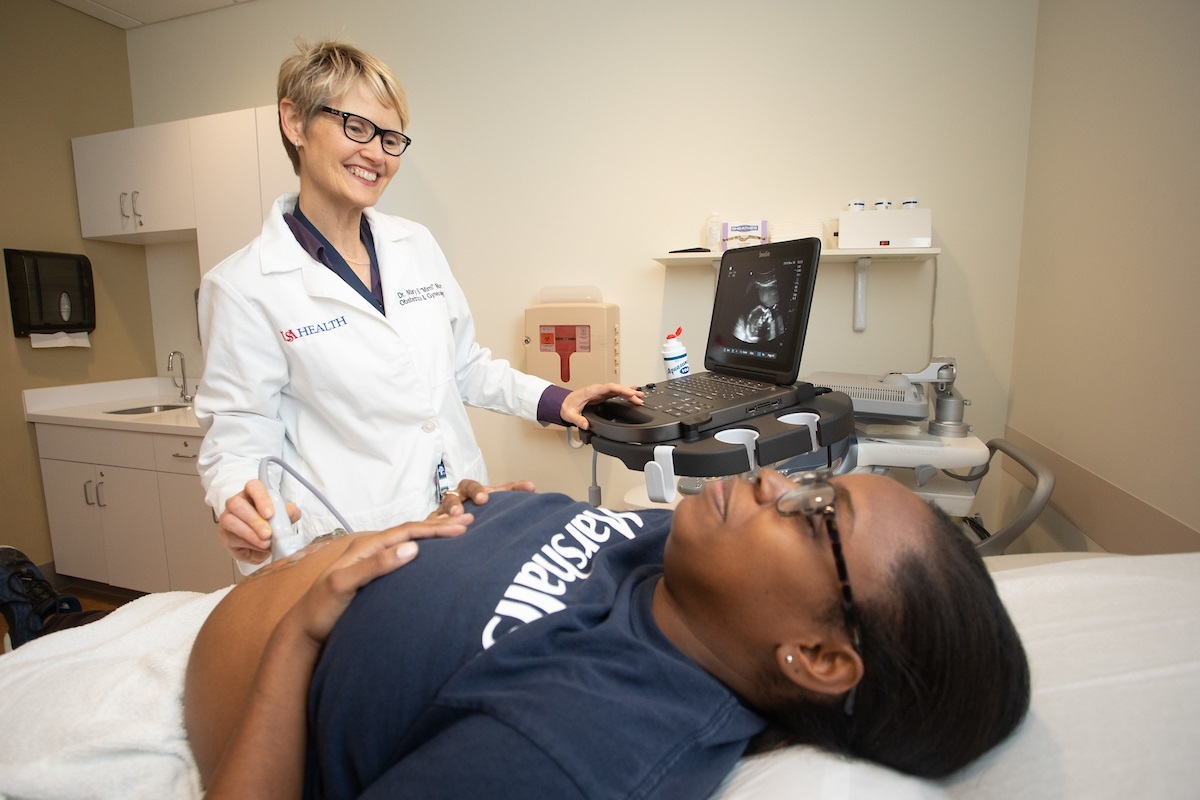High-Risk Obstetrics at USA Health
We offer comprehensive care for women and babies who are at increased risk of health problems during pregnancy, during delivery and after birth.
A variety of factors can cause a pregnancy to be considered high risk, including:
- Existing health conditions such as diabetes, cardiac conditions, asthma, high blood pressure and obesity
- Health conditions that develop during pregnancy such as gestational diabetes and Rh sensitization (caused when the mother is Rh negative and the father is Rh positive)
- Lifestyle risks such as smoking or using alcohol or drugs
- Advanced maternal age
- Multiple pregnancy (twins, triplets, quadruplets)
As the most experienced provider of obstetrics and gynecology (OB-GYN) in the region, we have a multidisciplinary team of physicians, nurses, technicians and staff who specialize in caring for high-risk pregnancies. Our high-risk OB team includes nutritionists, social workers, research nurses and perinatal coordinators. We also offer preconception and interconception counseling.
Maternal-Fetal Medicine at USA Health
Our maternal and fetal medicine group cares for women whose unborn babies require special attention before or at birth. In our Fetal Diagnostic Clinic, we diagnose problems as quickly as possible, offer and evaluate all treatment options and choose the best plan for both mother and baby. This may sometimes require immediate delivery.
Maternal and fetal medicine specialists perform advanced ultrasounds, review the results and discuss the findings with the patient. If you want an amniocentesis to provide further information about possible fetal anomalies, we can schedule it the same day.
USA Health offers the latest prenatal testing and screening technologies, including:
- Ultrasound screenings performed by certified sonographers
- Nuchal translucency (NT) scan performed in the first trimester screenings to identify risks for Down syndrome and other chromosomal abnormalities
- Amniocentesis
- Fetal testing and therapy (BPP, NST, Doppler studies, placental biopsy, amnioinfersion, umbilical cord sampling, fetal transfusions)
- Studies to detect alloimmunization in which the mother's immune system may be attacking fetal blood cells resulting in fetal anemia
- Diabetes management
- Genetic testing and counseling with a certified genetic counselor









